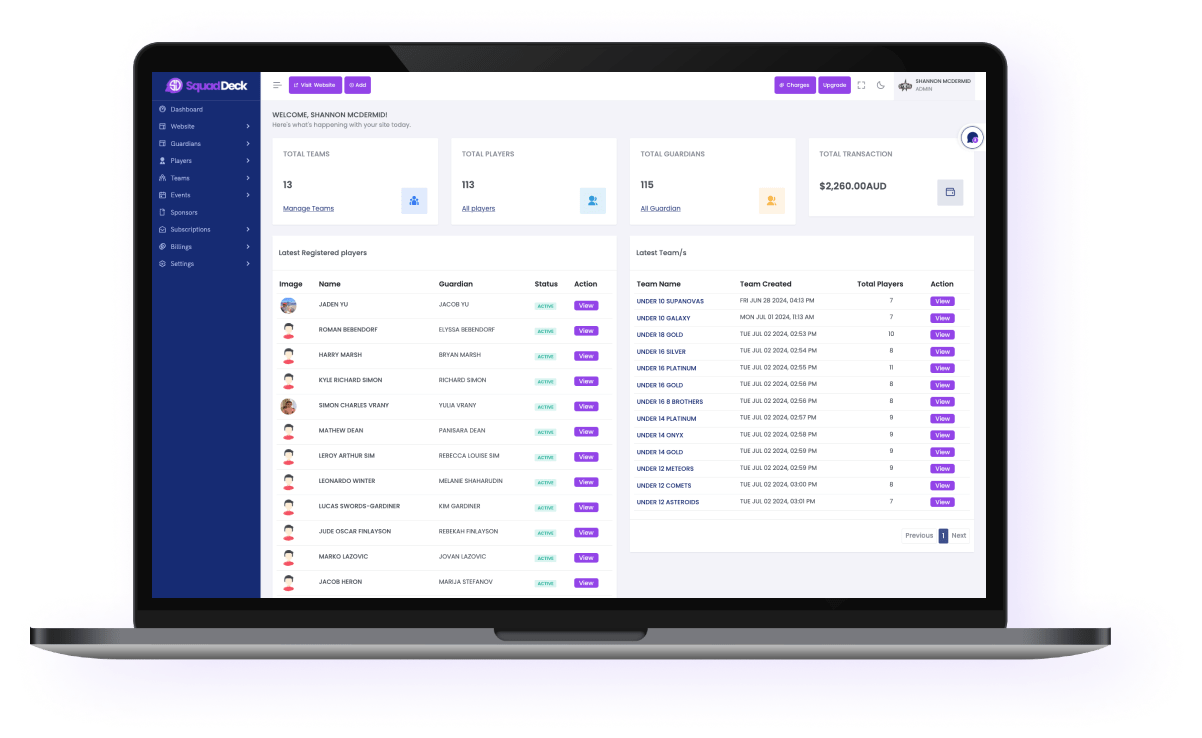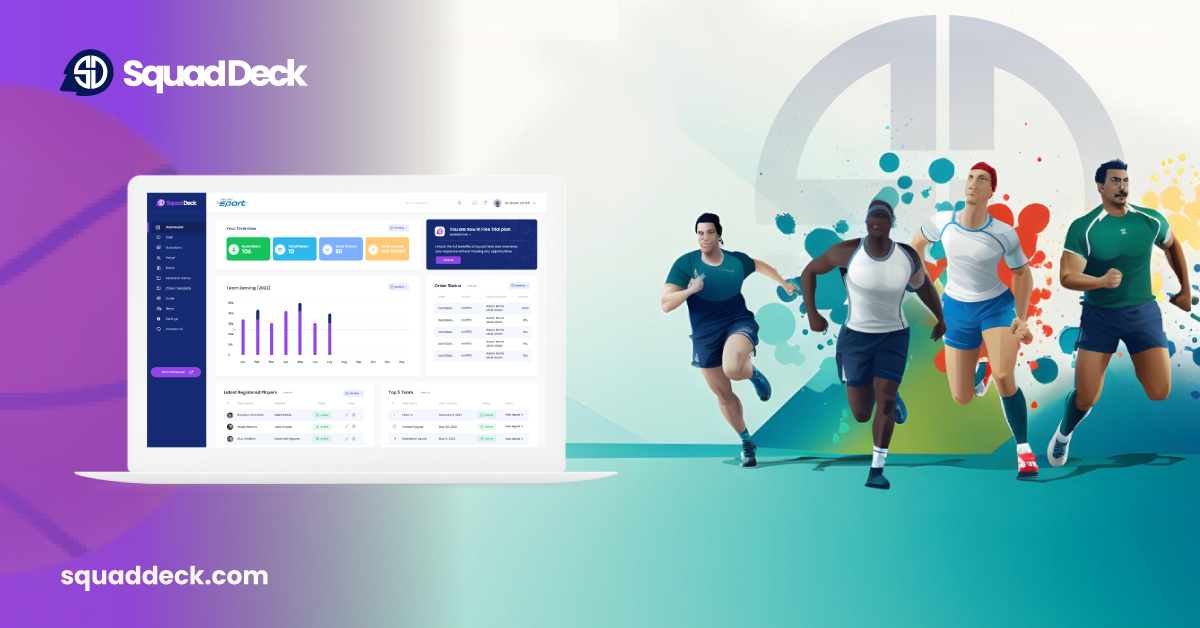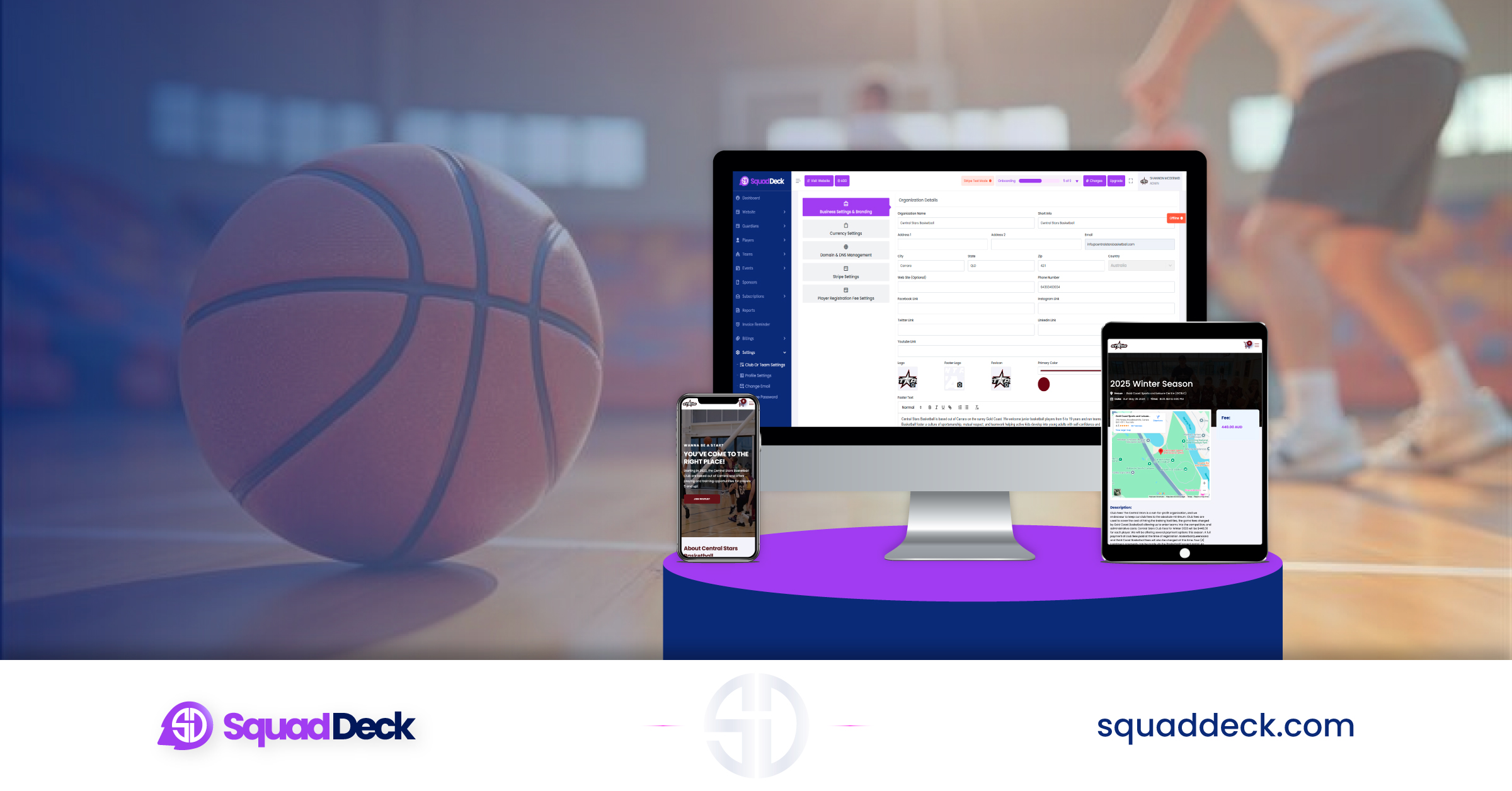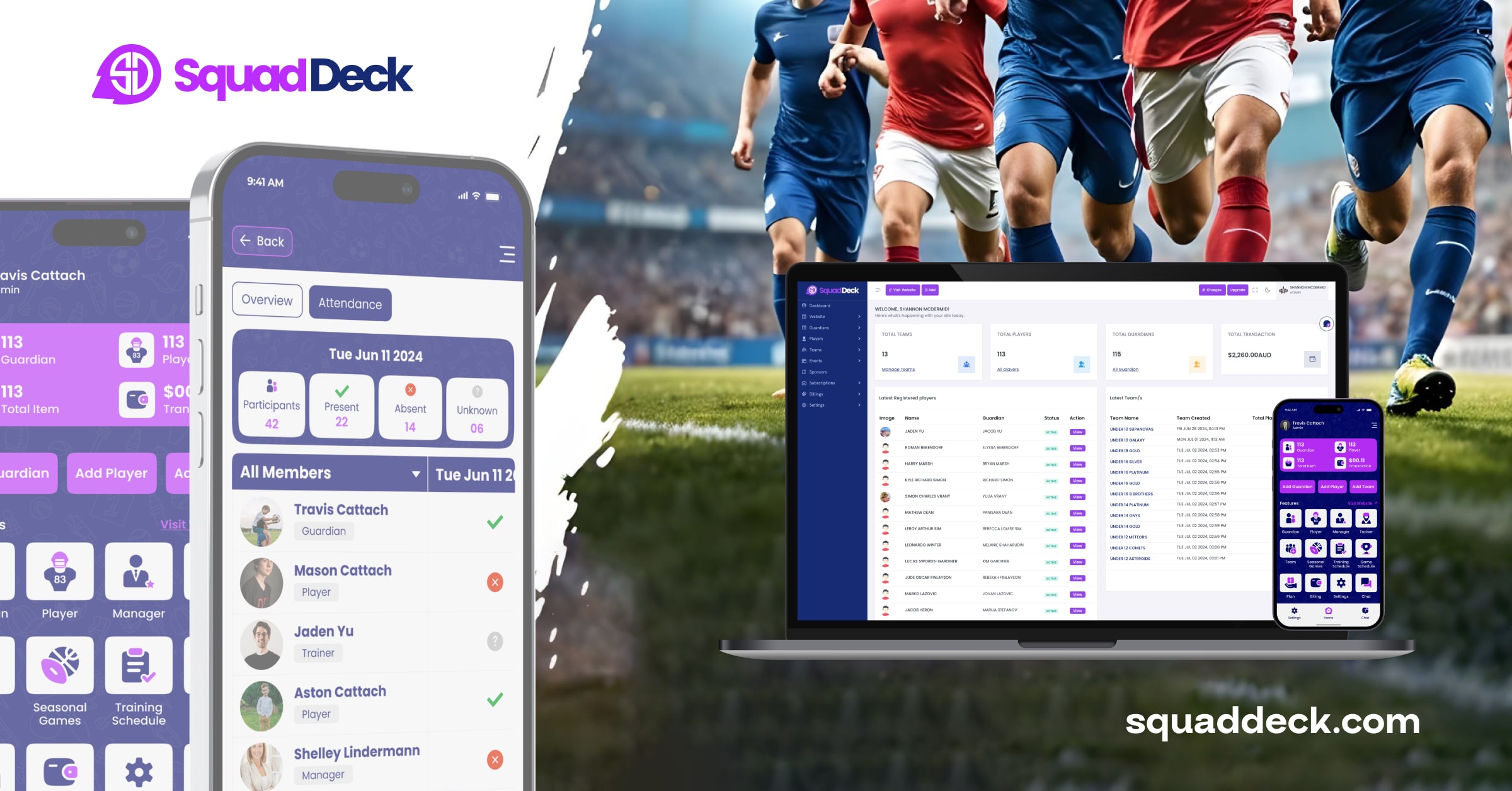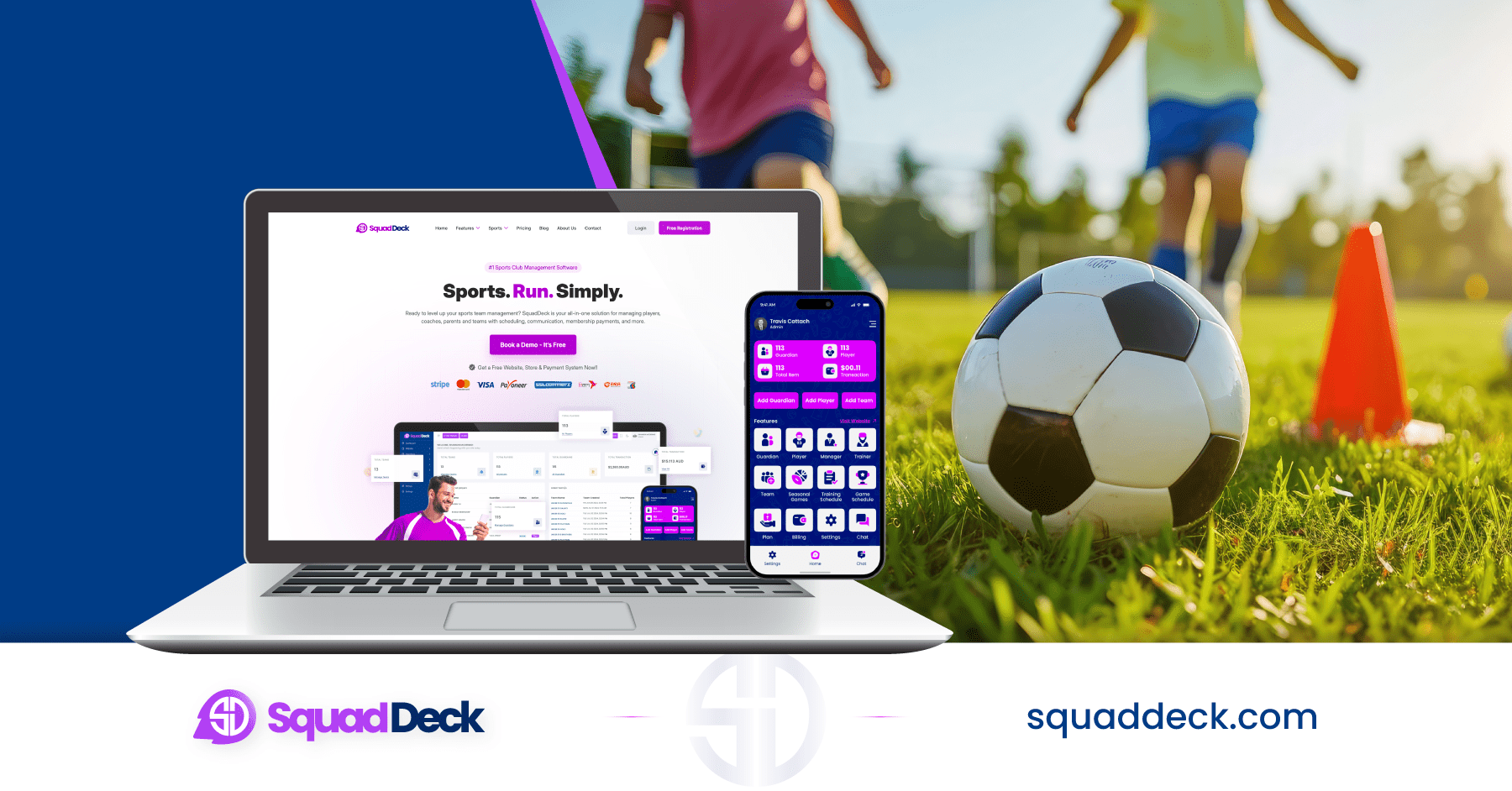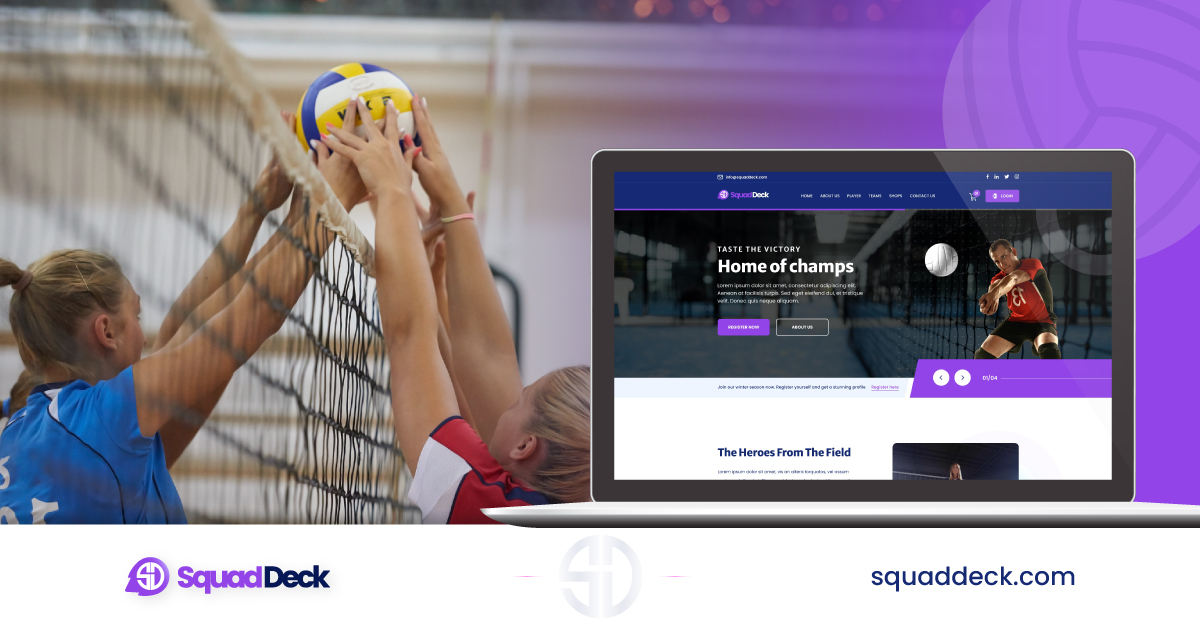Software Landscape for Sports Governing Bodies At SquadDeck
Sports have always been an integral part of human culture. From ancient Olympic Games to the modern-day Super Bowl, the love for sports transcends generations. With the evolution of technology, sports governing bodies have found innovative ways to manage and enhance the sporting experience. This blog post delves into the changing landscape of software solutions for sports governing bodies, highlighting the significance of modern technology in sports management.
Evolution of Software Solutions for Sports Governing Bodies
In the past, managing sports events, clubs, and data relied heavily on paperwork, manual calculations, and limited resources. However, with the advent of software, the landscape has transformed. Today, sports governing bodies have access to powerful tools that simplify operations, foster better member engagement, and enable data-driven decisions.
Importance of Modern Technology in Sports Management
The integration of modern technology has become paramount for sports governing bodies. It not only streamlines processes but also enhances the overall experience for athletes, club members, and fans. With features like live streaming, analytics, and mobile accessibility, technology has revolutionized the way we experience and manage sports.
Need for Modern Technology for Sports Governing Bodies
To better understand the role of Software Landscape for Sports solutions in sports management, let’s break down the specific needs of sports governing bodies.
- Member Club Management: Effective management of member clubs is crucial for sports governing bodies. This involves membership registration, tracking, and communication.
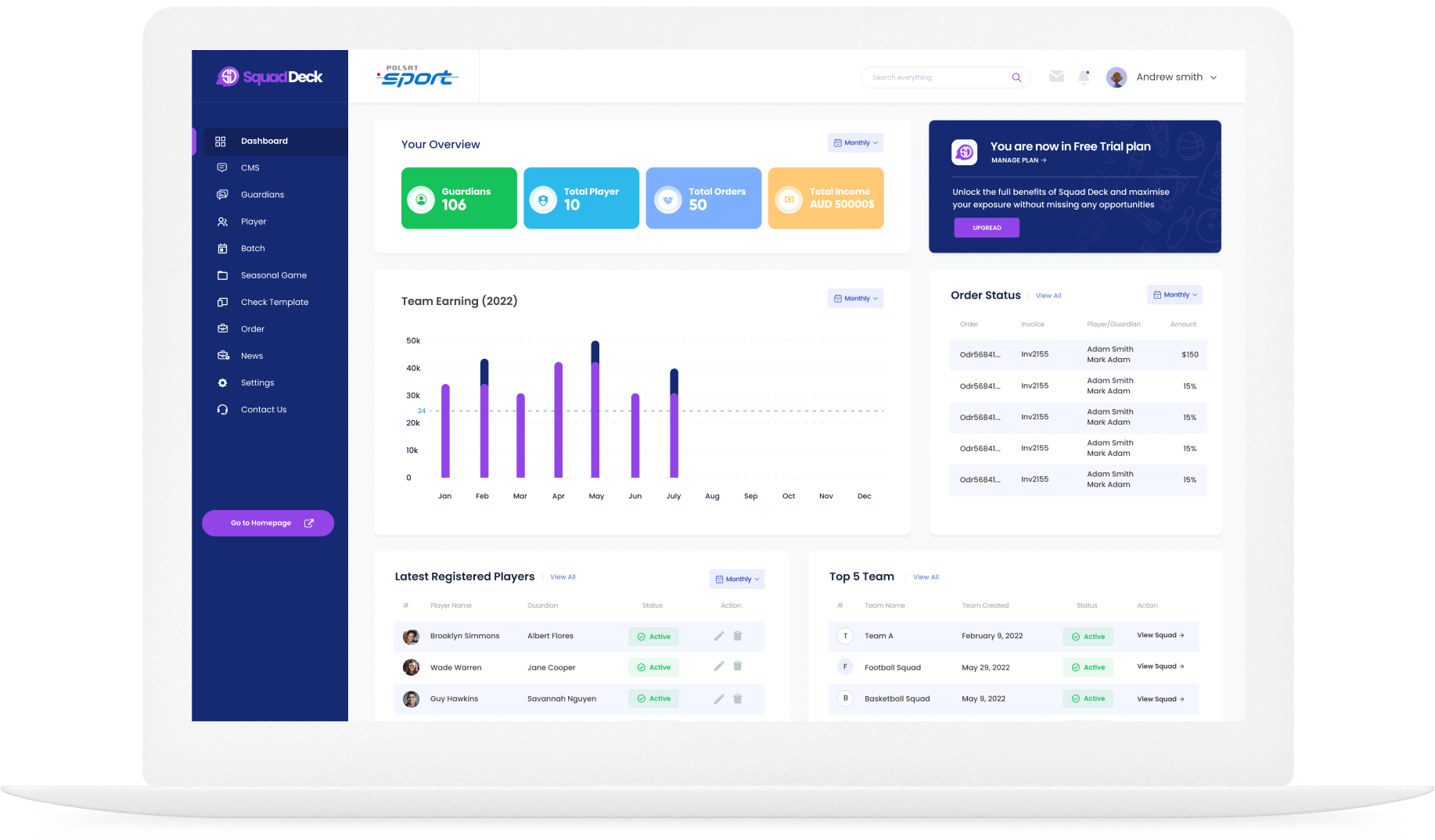
- Event Management: From scheduling matches to ticket sales, software solutions can simplify the complex task of managing sports events.
- Data Management: Accurate data is the backbone of informed decisions. Modern software ensures data integrity and accessibility.
- Financial Management: The financial aspect of sports management is critical. Software helps in budgeting, financial reporting, and fundraising.
- Member Engagement: Engaging with members and fans is vital for building a strong sports community. Software offers tools for communication, feedback, and involvement.
- Analytics and Insights: Data-driven decisions are a hallmark of modern sports management. Analytics provide valuable insights for improving performance and strategy.
- Marketing and Promotion: Effective marketing is key to promoting events, clubs, and athletes. Software assists in digital marketing, social media management, and brand building.
- Compliance and Governance: Compliance with rules and regulations is essential. Software helps in tracking and ensuring governance within sports organizations.
- Security and Privacy: Protecting sensitive data is a top priority. Software solutions provide robust security measures to safeguard information.
- Mobile Accessibility: In an age where smartphones dominate, mobile accessibility is crucial. Apps and mobile-friendly platforms make information and engagement accessible on the go.
- Integrated Capabilities: Integration ensures seamless operation across different aspects of sports management. Software that connects various functions simplifies processes.
- Sustainability Initiatives: As environmental concerns grow, sports governing bodies need to embrace sustainability. Software can help in managing sustainable practices and tracking environmental impact.
Options Available
Sports governing bodies have a variety of software options to choose from. Each option offers a unique set of features and capabilities.
A. Integrated Platforms: Integrated platforms are all-in-one solutions that cover a wide range of needs. Examples include SquadDeck.
B. Specialized Solutions: Specialized solutions focus on specific aspects of sports management. LeagueApps, for instance, specializes in league and club management.
C. Open-Source Software: Open-source software is a cost-effective choice, but it may require more technical knowledge. SportsPress is an example of open-source software tailored for sports websites.
D. Custom Development: Custom development allows sports governing bodies to design software tailored to their exact needs. It offers complete flexibility and control over the features.
E. Hybrid Approach: Some organizations adopt a hybrid approach, combining off-the-shelf software with custom development to strike a balance between cost and functionality.
Cost and Trade-offs
The choice of software also comes down to cost and trade-offs. Each option has its own financial implications and benefits.
- Subscription-Based: Subscription-based software solutions are suitable for small to medium-sized clubs as well as larger organizations. They often offer tiered pricing options.
- Free and Open Source: Open-source software is generally free to use, but there are costs associated with customization, maintenance, and support.
- Custom Development: Custom development can vary in cost depending on the complexity of the software. It provides the most tailored solution but can be expensive.
- Trade-offs Between Free, Comprehensive Platforms, and Custom Solutions: The choice between free, comprehensive platforms, and custom solutions depends on budget, requirements, and long-term goals. It’s crucial to weigh the trade-offs and benefits of each option.
Conclusion
In conclusion, the choice of software solutions is pivotal for sports governing bodies. The right software can streamline operations, improve member engagement, and enhance the overall sporting experience. Key factors to consider include integration, ease of use, scalability, and support.
The impact of choosing the right software is felt not only within sports governing bodies but also by member clubs, athletes, and fans. It transforms the way sports are managed, experienced, and enjoyed.
Frequently Asked Questions (FAQs)
Q1. Can open-source software meet the needs of large sports governing bodies?
A1: Open-source software can be suitable for large organizations, but it often requires additional customization and support, which may come at a cost. Large organizations should assess their specific needs before opting for open-source solutions.
Q2. What is the primary advantage of a hybrid approach in software selection?
A2: The hybrid approach combines the advantages of off-the-shelf solutions with the flexibility of custom development. It offers a balance between cost-effectiveness and tailored features.
Q3. How can software positively impact sustainability initiatives for sports governing bodies?
A3: Software can help in tracking environmental impact, managing sustainable practices, and reducing the ecological footprint of sports events and clubs. It plays a vital role in promoting sustainability within the sports community.
Q4. Factors to Consider in Choosing Software Solutions.
A4: When making a decision, consider factors like cost, scalability, and the specific needs of your organization.
Q5. Importance of Integration, Ease of Use, Scalability, and Support.
A5: Integration ensures that all components of your sports management system work seamlessly. Ease of use is essential for all users, from administrators to members. Scalability ensures that the software can grow with your organization, and reliable support is invaluable in case of issues.
Q6. The Impact of the Right Software on Sports Governing Bodies and Member Clubs.
A6: The right software can lead to more efficient operations, better member engagement, and increased revenue. It can also enhance the reputation and professionalism of the organization.



